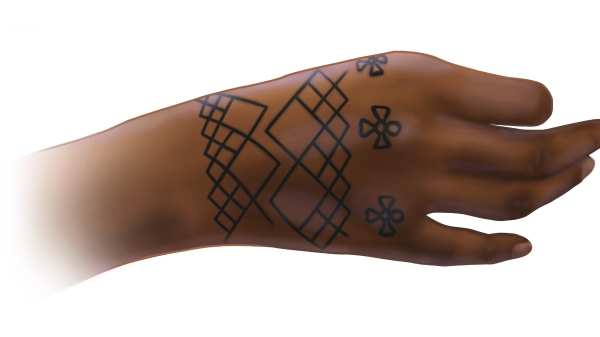ASU alum publishes graphic novel on computer generated images, machine learning

Cover image from "Creating with Code: A Fun Exploration of Computer-Generated Images and Machine Learning."
Jennifer Weiler, an Arizona State University media arts and sciences postdoctoral alumna and current faculty associate, is releasing a comic book this summer that teaches users how to use code to make computer-generated images.
Weiler, who was influenced by her work at ASU as a student in the School of Arts, Media and Engineering, has been working intensely over the last year to create and publish her first comic book, “Creating with Code: A Fun Exploration of Computer-Generated Images and Machine Learning.” She said she made the comic to educate people about how to effectively utilize coding to construct stylistic computer-generated images and apply methodologies of machine learning in the process.
Weiler designed “Creating with Code” in a manner that focuses on learning through visual narration and imagery in a fun way. She plans to release it in digital format on Amazon on June 15, with a print release planned in the next few months.
Question: Can you explain a bit more about the work during your PhD that helped influence this book?
Answer: While pursuing my doctorate in media arts and sciences, I spent a lot of time exploring different ways to create images using computer programming. Essentially, by writing code, it’s possible to give the computer a set of instructions that create different types of images. I have continued to expand my knowledge since graduation, and I have focused on machine learning (computer algorithms that can improve through experience) and how it can be used to generate images. Learning about new approaches and technology is something I enjoy immensely, and I want to introduce more people to these topics.
Q: Would you be able to provide a short description about this comic?
A: “Creating with Code: A Fun Exploration of Computer-Generated Images and Machine Learning” provides a comprehensive introduction to generating artistic images using the latest computer programming techniques. It explores the mechanisms, advantages and limitations of emerging technology. I avoided just creating a list of coding examples because I don’t want the book to be a how-to follow guide. Rather, I wanted to explain the underlying concepts and approaches that allow a series of instructions to create images, as well as some of the challenges that may be faced when trying to get the results you want.
Q: What made you want to create a graphic novel rather than a standard book?
A: The material covered in this book is all about images: what kind of images can be generated and what the results can look like. And, to me, it was obvious that kind of information would best be conveyed in a primarily visual medium. In addition, I’m a big believer in conveying information in an entertaining and efficient way. I feel it would be a disservice to the audience to spend paragraphs trying to explain a concept that can be immediately understood with a sentence and an image.

Excerpt from Weiler's comic.
Q: How long did it take you to create the comic?
A: I first had the idea to create “Creating with Code” back in the summer of 2020. Like many of us, I was spending a lot of time at home and wanted to focus on something fun and productive. Writing and drawing took about five months, but honestly a lot of time before that went into deciding what I wanted to talk about, because there is so much material in this field that it was hard to narrow it down.
Q: What is your hope with this comic book?
A: I want to introduce the concept of generating images with computer programming to people who otherwise wouldn’t have given this topic another thought, and to present it in a way that is not overly technical and won’t require a lot of time to understand. I find this field super fascinating, and I want to share that excitement and promise with as many people as possible.
Back when I was in high school, hardly anyone was learning about computer programming. I can’t help but wonder if media like this could help drive enthusiastic new students into technology-focused creative fields when entering into college and beyond.
Q: Do you have any other future comic books in mind?
A: I’ve absolutely been thinking about what other topics I would like to write about. Art and technology used in makerspaces — another area I explored in my PhD work — comes to mind, but I haven’t made any decisions yet!
Q: Is there any additional information you would like to share?
A: I will be releasing “Creating with Code” in digital format on Amazon on June 15, with a print release planned in the next few months. For anyone interested in updates, I have a mailing list you can join by reaching out to me at [email protected]. I would be delighted to hear what people think of the book!
More Science and technology
Findings on adenoviruses in baby gelada monkeys provide a window into our own cold and flu season
If you have young kids or spend time around day care centers, you know the drill: Someone gets a cold, and soon the whole group…

Student teams create AI tools to help neurodivergent learners
When Stevie Cervantes was a first-year student at Arizona State University, she shied away from using AI.“AI was everywhere and…

ASU researchers shed light on ancient tattoos in the Nile Valley
Long after an archaeological excavation, discoveries can still be made. One such example of this is newly discovered tattoos from…